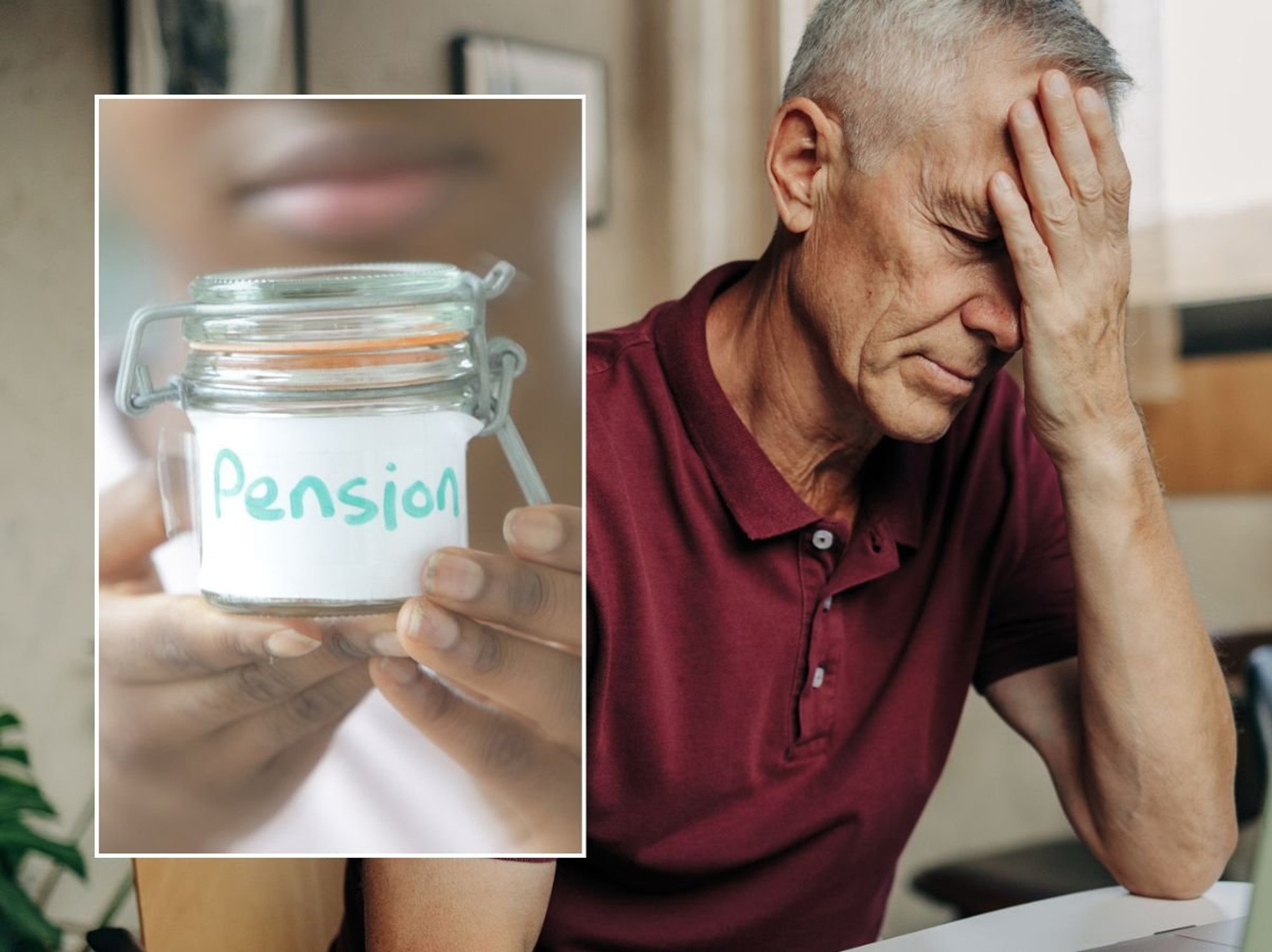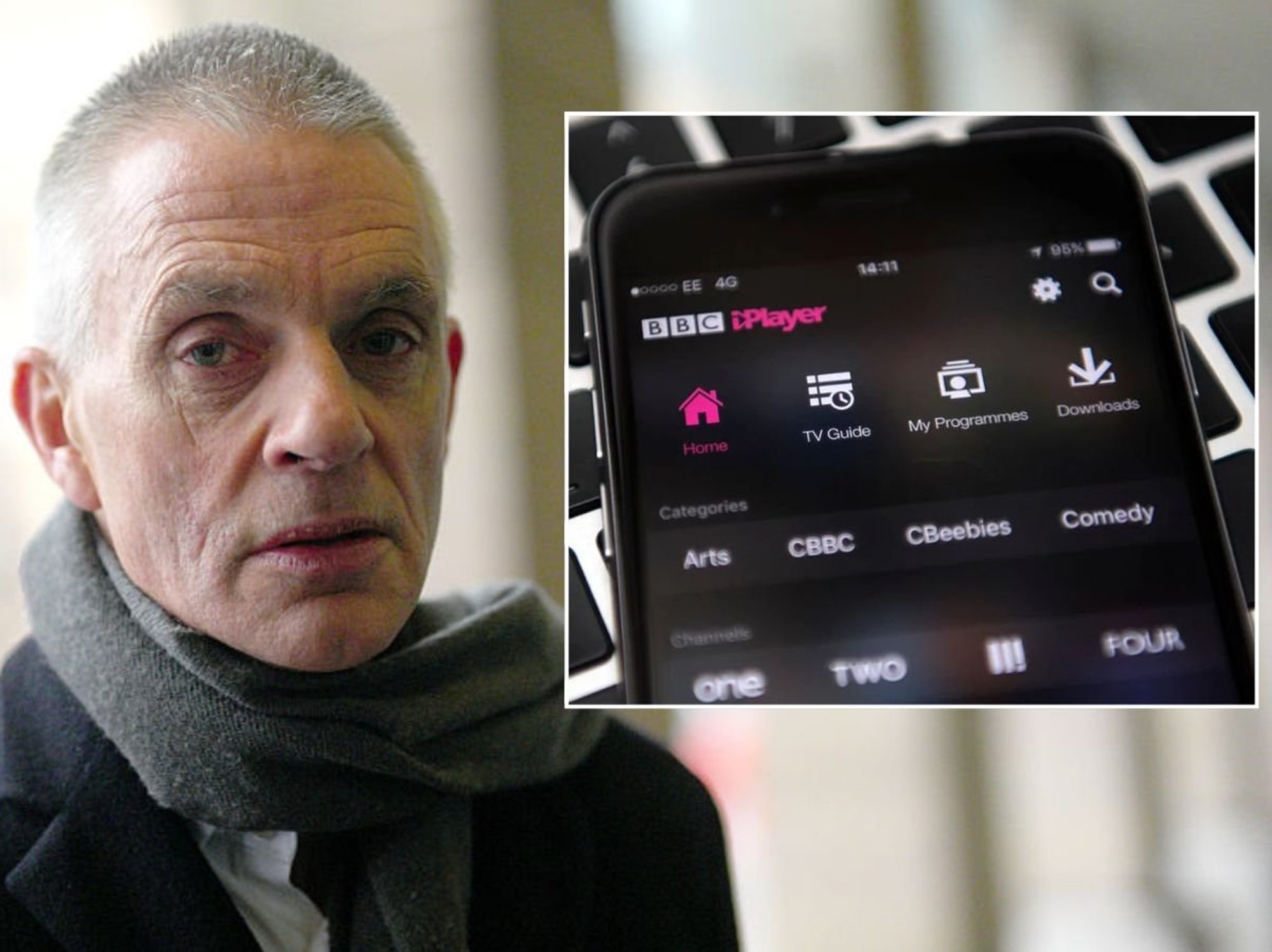Doctor Q&A: How do I reverse the damage caused by the Covid vaccine? Dr Renee Hoenderkamp answers your burning health questions

Celebrity NHS doctor Renée Hoenderkamp addresses GB News members' burning questions
|Doctor Renée Hoenderkamp

In this week's Q&A, celebrity NHS Doctor Renée Hoenderkamp provides advice on treating complications associated with Covid vaccination, what a raspy and strained voice could mean and how to treat Ramsay Hunt Syndrome
Don't Miss
Most Read
If health problems disappeared as quickly as they emerged, it would save patients a lot of stress and heartache, and pull a cash-strapped healthcare system back from the brink.
Alas, we do not live in that world. Until we do, paying a visit to the doctor is the first step in what can be a long and gruelling process.
The snag here is the impossibility of seeing a doctor. Thankfully, GB News has a virtual workaround: submitting your questions to celebrity NHS Doctor Renée Hoenderkamp via health@gbnews.uk each week.
In this week's Q&A, Doctor Hoenderkamp provides advice on treating complications associated with Covid vaccination, what a raspy and strained voice could mean and how to treat Ramsay Hunt syndrome.
Last week, our resident doc shed light on the relationship between vitamin E supplementation and cancer risk, how to put type 2 diabetes into remission and the best exercise for easing back pain.
It's important to remember that the advice given below is general and not individual and you should always seek individualised health care from a doctor.
With those caveats aside, see below Doctor Hoenderkamp's answer's to GB News members' burning questions.
Good afternoon Dr Hoenderkamp, I have been struggling with Ramsay Hunt Syndrome since March last year. My face is stiff with blisters and I am told there is no cure other than take drugs but I don't want to stay on them for the rest of my life as they give me nasty side effects. Is there anything I can do?
I am so sorry to hear that you are still suffering after four months of Ramsey Hunt Syndrome. This is a sad and debilitating complication of shingles.
If you have ever had chickenpox, even as a child, the virus remains with you for life, sheltering in the nerve roots of the spinal cord. As an adult, it can reactive and for most people a case of shingles causes a rash and pain around a nerve. This is why shingles is almost always on one side of the body – the reactivation happens from one nerve root and spreads out from the spine along that nerve.
A complication of shingles is a syndrome called Ramsey Hunt and this is where the reactivation affects the facial nerve and can cause symptoms from the ear to the nose on one half of the face that include:
- A rash/blisters in or around the ear, scalp or hairline, mouth that can cause pain/burning.
- Weakness on the affected side of your face which causes the facial muscles to droop.
- Altered taste on half of the tongue.
- Weakness of the muscles causing that side of the face droops, eyelid can’t be closed,
- Loss of facial expression on the affected side.
- Difficulty eating, drinking and speaking on the affected side.
- Hearing loss on the affected side
- Dizziness/vertigo
- Tinnitus (ringing in the ear) on the affected side.
Duration
For most people, the symptoms will resolve after a few weeks but for others, this can take longer, and an unlucky few will have it for life. The key - by no means a guarantee - to complete recovery is starting treatment within three days of the first symptoms. This is the best way to preserve the nerve. Estimates for full recovery vary from 50-70 percent which isn’t great and sounds like where you are.
The normal treatment includes steroids to reduce inflammation, antivirals to get on top of the viral reactivation, painkillers and lubricating eye drops. You may have to tape your eyelid closed to prevent ulcers developing on the eye surface.
In terms of anything that you can do. I would look to making sure your vitamins are topped up, especially those involved in nerve health which include vitamins B12, B6, D, E and magnesium and zinc. There are some dietary changes you can make and I have included a link here.
I am so sorry not to have more definitive help but don’t give up hope. Nerves can take months to years to repair and there is always the hope that yours is just taking its time.
I hope that this helps.
Hello, are there any medications or supplements that can reverse any damage caused by the Covid vaccine? I think it gave me a heart attack
I am so sorry to hear that you have had a heart attack and that you feel the Covid vaccine was the cause. There is evidence linking Covid vaccines to inflammation of the heart muscle and this takes the form of myocarditis and pericarditis.
It's very hard to find any evidence regarding heart attacks after the vaccine but there is a paper making the connection in people over 75.
To focus on your question regarding reversing the damage following your heart attack, this really falls firmly in to the realms of heart rehabilitation. When you have a heart attack the heart muscle is starved of oxygen and some cells die, this causes scar tissue. How quickly you received treatment and how extensive the damage was will predict the recovery that your heart can make.
Having said this, whilst the scarred tissue cannot be repaired there are things that can be done to help maximise heart function and future health.
1. Cardiac rehabilitation
This should have been offered already but if not please chase your doctor. A guided and personalised exercise, education and support program.
2. Medication
Lower your risk of future heart attacks with medication that can help do this and remodel heart tissue. These include beta-blockers, ACE inhibitors/angiotensin II receptor blockers, hydralazine plus nitrates, aldosterone inhibition with spironolactone.
3. Manage risk factors
It is important to manage risk factors to prevent further damage or another heart attack. This means keeping blood pressure, cholesterol and blood glucose in normal range. This can be done with lifestyle changes such as eating healthy food, exercising regularly, particularly aerobic exercise, maintaining a healthy weight with a BMI under 25, quitting smoking and using the meds your doctor recommends that can affect heart remodelling.
I am aware that you likely know all of this so looking specifically at your concerns around the vaccine. There are no resources that I can find that are specific to post vaccine heart attacks but I would suggest looking at the UKCV Family support group who have a page on managing your injury here.
I hope that this helps and sorry to be unable to find more but the overriding message is to do as much as you can personally do to improve your heart health and be one of the many who live a long enjoyable life after a heart attack.
Good luck!
Hi Doctor Renée, my voice sounds constantly strained and has gone very quiet. My wife can barely hear me nowadays. Blood tests haven't turned up anything but I am concerned. I also have indigestion. What do you think could be causing it? Thank you
What you are describing is known as ‘hoarseness’ and approximately one in three people will suffer at some point in their lifetime.
It often affects smokers and those who use their voice more than usual, singers, teachers, public speakers etc. It can take many forms and include symptoms such as:
- Speaking more softly or quieter than usual
- Sounding as if you’re having a hard time talking.
- Your voice sounds raspy or breathy.
- Your voice pitch appears higher or lower than usual.
Normally this is caused by simple and self-resolving issues such as laryngitis, common colds and vocal cord strain.
Sometimes there are more serious things that will need some medical attention such as chronic acid reflux, nodules, cysts, polyps on your vocal cords, vocal cord paralysis, neurological diseases, and rarely cancer.
In terms of your hoarseness, the important things are how quickly it came on, how long it has persisted, what other symptoms you have and if you smoke. Having said all of this, whilst I understand that you have had blood tests, this would not be my first approach.
If you have had the issue for more than three weeks I would want to send you immediately for a Chest X-ray/two-week wait (2ww) referral to exclude anything more serious such as cancer. This would involve not only the X-ray but also a camera to have a look down your throat to your stomach. So please ask your GP to do an urgent referral under the 2WW pathway.
In the meantime, it may well be your reflux getting worse or the damage from reflux finally showing itself. So it is important to tackle some potential causes of reflux.
Avoid the following:
- Tomatoes
- Spicy food
- Chocolate
- Peppermint
- Caffeine
- Alcohol
- Smoking
Make sure you shift any weight that has crept on as this increases intra-abdominal pressure and pushes the stomach up and stomach acid can enter the oesophagus and can reach as high as the vocal cord where it causes a cough or hoarseness. Aim for a BMI of under 25.
You could also increase your reflux medication while you do all of the above.
I hope that this helps and good luck!










